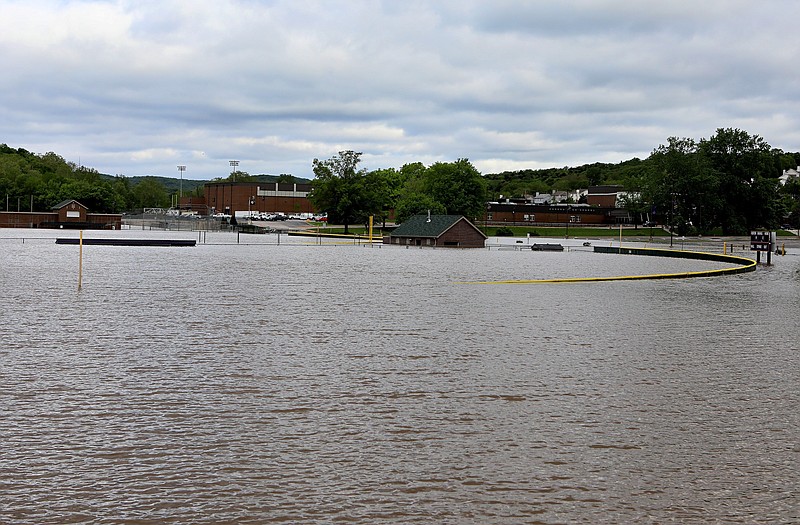Dwain Carter, the Missouri Baptist Convention's Disaster Relief strategist, was driving to West Plains Monday afternoon to help direct the MBC's response to the state's latest flooding disaster.
Dave Griffith, executive director of the American Red Cross' Central and Northern Missouri chapter, was contacting volunteers.
Both men were working on their part of coordinated efforts to help people hit by the major flooding following weekend storms.
"We're assessing the needs that we have in different areas," Griffith told the News Tribune, including "community partnerships, government liaisons, disaster volunteers, disaster-assessment teams, medical personnel (and) mental health volunteers."
Those people will help either in a Red Cross shelter or in a multi-agency resource center, he explained.
The agency's St. Louis office said it already had opened 10 shelters, had another one ready to open if needed, and was helping staff operations in three other shelters in Southwest Missouri.
Only one family stayed Sunday night at the St. Robert shelter, Griffith said, "but, as this prolongs and goes on, that number may very well rise."
The Red Cross doesn't know yet how many volunteers will be needed.
"In the flooding of 2015, we had over 600 volunteers from around the country who came in to support us in that disaster response," he said.
That flooding affected many of the same areas being hit by this week's flooding.
"Generally what happens in a disaster like this is, it takes awhile to do the assessment and to find out where we are," he said. "There are so many areas right now that we can't even get into."
Carter said the Baptists' Disaster Relief also still is determining how many volunteers it will need, "but we'll probably have close to 1,000 volunteers at this response."
There's little chance the agencies will get in each other's way.
"We couldn't (work) without those partnerships," Griffith said. "Those are ones that we've worked on and nurtured for a long time."
Most often, the Baptists end up preparing meals.
"If you see the Red Cross feeding people, Southern Baptists are cooking 95 percent of that food," Carter said. "We feed people like we think you would eat at home, at nighttime."
But because this flooding is so widespread, Carter said, the Baptist volunteers likely won't be cooking, but will be doing other work.
"After the water recedes, we'll go in and clean out people's homes," he said. "We'll take the mud and all the wet material out, and then sanitize them and spray mold-killer in them, and get them ready to rebuild.
"We also offer emotional and spiritual care through chaplains, to people of any faith."
Griffith added, "Catholic Charities, Salvation Army, Lutheran Services - a lot of those folks are there for the long-term and can help with long-term recovery."
Carter noted much of the recovery effort is coordinated through an organization called MoVAD - Missouri Volunteer Organizations Assisting in Disaster.
They work with and through the State Emergency Management Agency.
Griffith and Carter both said they know people want to help - and the best way to help is by sending money.
"It almost sounds impersonal," Griffith said, "but that's what's going to help us to fund the mission that we're in and, given the level that we're at now, we're really going to need to utilize our fund-raisers to be able to help support that."
People can donate to Red Cross Disaster Relief online at redcross.org, or by calling 800-RED CROSS (800-733-2767) or, to make a $10 donation, texting the word REDCROSS to 90999.
Carter noted, "We don't accept donations from victims of the storm, because everything we do, we do for free."
But others can donate by sending a check to Missouri Baptist Disaster Relief, 400 E. High St., Jefferson City, MO 65101.

